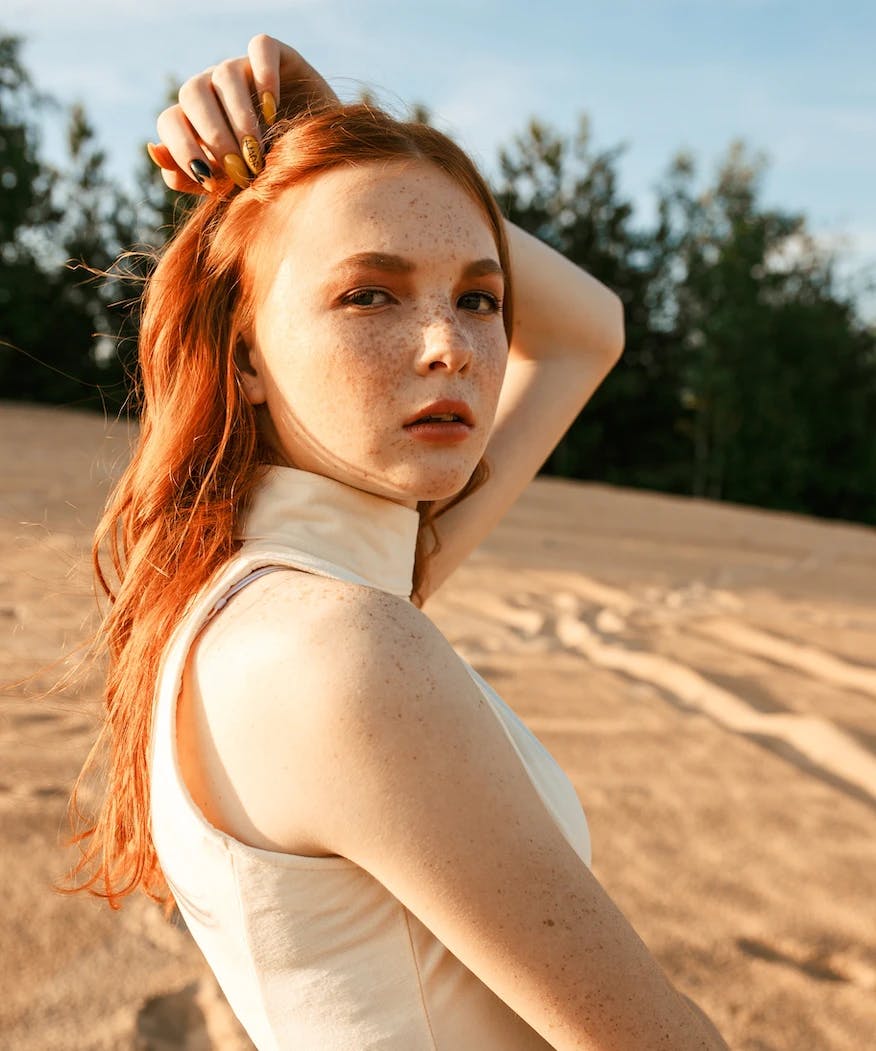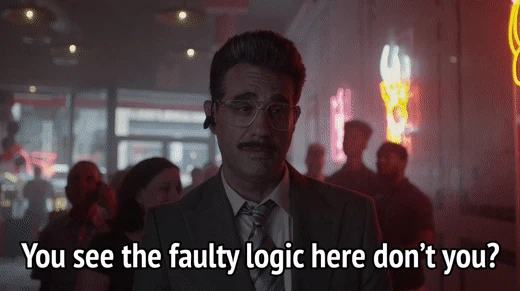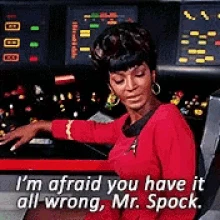Why Are Redheads Being Erased In Media?
Sorry, redheads, the rarest hair color in the world is about to become that much harder to come by in media.

What do Ariel from The Little Mermaid, Annie from Annie, Mary Jane from the Spiderman universe, Starfire from Teen Titans, April O’Neil from Teenage Mutant Ninja Turtles, and Trish from The Witcher all have in common? All of these characters (and many more!) were originally redheaded white women who have been redesigned to be black in recent iterations.
What may appear to be a harmless trend intended to create more representations of nonwhite characters has become, in actuality, just race-baiting progressive guilt that isn't only divisive, but counterproductive. What’s even more ironic is that redheads only make up 1-2% of the global population and 2-6% of the American population, so they're also a minority compared to the black population, which was 14.2% of the American population in 2021.
Say Hello to “Ginger Genocide”
After the trailer for Seth Rogen’s Teenage Mutant Ninja Turtles: Mutant Mayhem dropped, buzz spread about how April O’Neil, a character most often depicted as a redhead, was redesigned to be a black woman. Though some have tried to argue that April was always supposed to be black or Asian, the original comics depict her as white.
This story follows on the heels of another fairly recent race-swap controversy where fans of the original animated Disney movie The Little Mermaid questioned why redheaded Princess Ariel had to be race-swapped. The source material, a Hans Christian Andersen fairy tale, is Danish in origin, and though Disney’s animated Ariel does have red hair, gingers are the most common in northern and western European countries.
Once you notice it in one place, it’s hard not to see it everywhere. When Netflix casting directors went to production on their The Witcher series, they took canonically ginger sorceress Triss Merigold from the video games and turned her black. Instances like these have led people online to create entire infographics showing off the “ginger genocide” of 32 characters that got the race-swap treatment. And yet, that’s not even all of them.
Of course, race-swapping isn’t exclusive to redheads. Look no further than the infamous Scooby Doo adaptation by HBO Max, Velma, where the titular character is now South Asian-American, Shaggy is black, and Daphne is East Asian-American. That said, it’s impossible to ignore the fact that prominent red-haired characters fall victim to the diversity police.
Stop Enforcing a Manufactured Conversation About Race
It happens in media for mature audiences. It excessively happens in media made for children. Back in 2020, amidst the Black Lives Matter (BLM) riots dubbed the “summer of love,” Nickelodeon genuflected by going “dark” in a company-wide blackout. The demonstration, meant to be a show of solidarity for “racial injustice,” was questioned by some critics for pushing an agenda on young audiences. In the current political climate, not even children’s media can be a sacred space away from partisan messaging.
Why might this be happening? Well, educators think it's their duty to open up politically charged dialogues about race relations. “Avoid Raising Racist Children” is the title of one column from an education website with four ways that “race-conscious” parents can discuss racism with their children.
"It is critical to help your child understand history through the prism of racism," wrote column author Matthew Lynch. “[I]f you exclusively watch and read items with nondiverse characters, they may take this as racial bigotry."
Lynch goes on to suggest that parents today grew up in “colorblind” culture where the norm was to avoid discussing race so that your children don’t grow up with prejudices. Yet instead of helping kids (and adults) understand a balanced, nuanced view of race relations, it would appear that both our education system and the entertainment industry have taken an extreme approach to try to disproportionately prop up nonwhiteness out of progressive guilt.
While I may not fear the backlash, most people don’t want to talk about the notion of “white erasure” because it’s borderline incriminating in today’s sensitive society. If you, as a white person, even so much as dare to suggest that there are vocal groups of people who cherish any and every opportunity to replace white people – whether that’s race-swapping characters or outright calling for the death of white people – then you’re the racist.
We’re supposed to smile and nod when we read that white people should be “eradicated,” that we’re "parasites" that need to be permanently “cured,” that whiteness should be abolished, that we should be killed in a genocide, or that our death “will mean liberation for all.” We’re supposed to do whatever it takes to be antiracist, even if that’s putting BLM resources in our Instagram bios. If not, then we’re contributing to the “white silence is violence” narrative. Oh, and don’t forget that if you accidentally say that it’s okay to be white, the Anti-Defamation League (ADL) will be hot on your trail, assuming that you’re intentionally using a hate slogan and have ill intentions.
Race Is Leveraged As a Means to Power
So where do race-swapping and the erasure of redheads come into play? With Marxist ideologies seeping into every institution from K-12 education to the entertainment industry, we’re continually told to genuflect to the cult of “antiracism.” This performative movement is fed to the masses on the basis that affirmative action-like tactics will somehow address inequality, not sow hatred.
The American Academy of Motion Pictures felt compelled to institute diversity quotas for Oscars eligibility, pushing affirmative action instead of merit. After being called out with hashtags like #OscarsTooWhite, only movies featuring an actor “from an underrepresented racial or ethnic group” in a significant role will be considered for an award.
At the rate we’re going, will traditional redheads ever be considered underrepresented? Remove them all from media, and I’d wager that they still couldn’t be considered underrepresented because the erasure of ginger (and otherwise white) characters is still part of the social justice people feel when they tackle “white fragility.”
Author of the controversial book White Fragility, Robin DiAngelo, PhD, has spoken across the nation about antibias training and why she thinks it’s so hard for white people to discuss racism. To Dr. DiAngelo, the idea of white fragility is “a state in which even a minimum amount of racial stress becomes intolerable, triggering a range of defensive moves.”
She and other race-baiting thought leaders believe that racism still exists so strongly in our nation that they’ve coined an entire field of research surrounding it called “Whiteness Studies.” The antiracist warriors insist that we remove white people from positions of power as an effort to dismantle whiteness. Any sort of “racial stress” this causes is just par for the course, and if you feel any amount of it, you’re actually the racist.

Tell me how these focused attacks to “dismantle whiteness” are any bit productive? Why shouldn’t we instead place a more primary focus on major issues that actually affect minority communities? Well, it’s a lot easier to race-swap characters in pop culture than it is to admit to the masses how minority communities are actually disproportionately affected by the welfare state or the abortion and contraceptive industries. Look, I can understand wanting to see broader representation in media, but do we have to increase visibility for one group by erasing another?
Just Let People Find Organic Success
Inorganic, force-fed diversity quotas are patronizing no matter which group is being propped up. As a woman, I feel insulted when characteristics I was born with matter more to someone than the actual value I bring to the world. Each and every decent person should know that judging someone based on physical characteristics or other traits they have no control over is discriminatory and unethical.
Diversity should be authentic, not compelled. If you’ve ever watched the Star Trek franchise, think about how natural it felt back then to see a diverse cast. Nichelle Nichols played Lieutenant Uhura, the first black female television lead in Star Trek: The Original Series back in the 1960s. LeVar Burton played Lt. Commander Geordi La Forge and Michael Dorn played Worf in Star Trek: The Next Generation in the late 1980s and early 1990s. Avery Brooks played Captain Benjamin Sisko in Star Trek: Deep Space Nine throughout the 1990s.

Though the Star Trek franchise has always included discourse on race relations or other socio-political topics about minority groups, those three early shows always felt organically diverse because there was no purposeful agenda to uplift one race while isolating another. Quality media with real diversity has existed for a long time.
When I watch male characters reimagined as females, I can’t help but wish that the entertainment industry could just write good, purposefully female characters in the first place. Though I’m white and cannot speak for how nonwhite people feel, I’d imagine that at least to some, they get a similar feeling seeing race-swapped characters. Wouldn’t it mean a lot more to just have new, exciting media that’s naturally diverse instead of being used as a tool to reboot a popular franchise and line the pockets of the entertainment industry’s elites?
Furthermore, even if these reboots end up seeing great success, will they ever supersede the originals in greatness? We know that the “all-star female cast” Ghostbusters remake from 2016 tanked at the box office and that the race-swapped Annie remake from 2014 received poor critic and audience reviews. Remakes rarely seem to be as beloved as the original content they’re based on, especially when they appear to be vehicles for anti-racist posturing.
Closing Thoughts
Instead of addressing actual inequality, Hollywood’s current race-swapping obsession feels more like a counterproductive virtue signal. It's only further fueling remake-mania, which is leaving audiences feeling unimpressed by the current caliber of mainstream releases. There’s no shortage of incredible fairy and folk tales from Africa, South America, Asia, and the Middle East. There’s also no shortage of creative brain power to craft enchanting new plots with unique characters we haven’t already seen reimagined in adaptation after adaptation.
At this moment in time, it would appear that redheads are on the critically endangered list. Whether it’s out of sheer laziness to create fresh content or out of genuine intent to discriminate, race-swapping really needs to stop. Using race as a means to power – no matter how much melanin is in your skin – is actually setting back society.
Readers make our world go round. Make your voice heard in the official Evie reader survey.